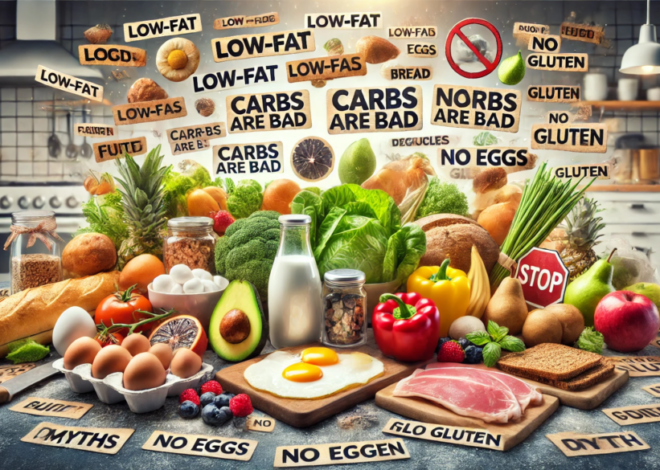
Is Breakfast Really the Most Important Meal of the Day?
Breakfast myth debunked: Is breakfast really the most important meal of the day, as we’ve been led to believe? Despite popular belief, recent studies challenge the notion that skipping breakfast is detrimental to your health. This post explores the origins of the breakfast myth, examines scientific findings, and considers different dietary habits around the world. With evidence suggesting that individual dietary needs vary greatly, it’s crucial to re-evaluate the one-size-fits-all approach to breakfast. Continue reading to discover if your morning routine needs a change or if breakfast truly is essential to your day.
Understanding the Significance of Breakfast in Daily Nutrition
Breakfast is often hailed as the most critical meal of the day. It sets the tone for your energy levels and mood. Understanding its importance helps in choosing better nutritional habits.
Historical Origins of Breakfast as a Key Meal
The concept of breakfast as a vital meal has evolved over centuries. Historically, it was not always part of daily life. In ancient Rome, breakfast was not a regular meal. People often consumed their first meal around noon. The word “breakfast” emerged in the Middle Ages, signifying the breaking of the nightly fast.
In the 17th century, breakfast gained popularity in Western cultures. It became more common among the working-class as a source of energy before farming or industrial tasks. The Industrial Revolution cemented breakfast’s role as essential. As workdays grew longer, people needed morning nourishment to maintain productivity.
Traditional breakfasts varied greatly worldwide. In England, a hearty meal with meats, bread, and ale was common. Meanwhile, in Asia, rice and fish dominated morning meals. These cultural differences highlight the adaptability of breakfast to local ingredients and lifestyles.
Today, the concept of breakfast continues to evolve. Health trends influence what people choose to eat. Despite changes, breakfast remains a globally recognized meal with significant cultural and nutritional importance.
Nutritional Benefits of Eating Breakfast Regularly
Eating breakfast offers numerous nutritional benefits. It replenishes glucose, boosting brain function and concentration. Studies show that breakfast eaters tend to have better memory and attention spans. A balanced breakfast also improves mood and reduces stress.
Moreover, breakfast kick-starts the metabolism. It helps in burning calories throughout the day and prevents overeating later. Skipping breakfast often leads to consuming larger, less healthy meals in the evening.
Regular breakfast consumption is linked to a better nutrient intake. People who eat breakfast are more likely to meet their daily requirements for vitamins and minerals. Foods like fruits, whole grains, and dairy provide essential nutrients that support overall health.
Breakfast also plays a role in heart health. Studies suggest that it can lower the risk of type 2 diabetes and heart disease. A morning meal that includes fiber and healthy fats supports cardiovascular health.
Common Breakfast Myths and Misconceptions
Despite its benefits, breakfast is surrounded by myths. One common myth is that skipping breakfast aids weight loss. In reality, it can lead to weight gain due to unhealthy snacking later in the day.
Another misconception is that breakfast needs to be a large meal. Quality matters more than quantity. A small, nutrient-rich breakfast can be just as beneficial as a larger one. Some believe that certain foods, like eggs, are unhealthy due to cholesterol. However, moderate consumption of such foods can be part of a balanced diet.
There is also a belief that breakfast is unnecessary if not hungry. While listening to one’s body is essential, forming a habit of eating something small can improve energy levels and metabolism over time.
Understanding and dispelling these myths can lead to healthier breakfast choices. It encourages individuals to focus on nutritional content rather than size or specific foods.
Evaluating the Impact of Skipping Breakfast on Health
Skipping breakfast is a common practice for many. However, it can have various impacts on health, ranging from metabolism to long-term wellness. Understanding these effects can guide better dietary decisions.
Metabolic Effects of Skipping Breakfast
Skipping breakfast can disrupt metabolism. It forces the body to conserve energy, slowing down metabolic processes. This slowdown can make weight management more challenging.
Breakfast jump-starts metabolism by triggering thermogenesis—the process of burning calories to produce heat. Without breakfast, this process is delayed, affecting how efficiently calories are burned throughout the day.
Prolonged fasting can lead to insulin resistance. This condition makes it harder for the body to process sugars, increasing the risk of type 2 diabetes. Eating breakfast helps regulate blood sugar levels, stabilizing energy throughout the day.
Not eating in the morning can also lead to increased cortisol levels. This stress hormone contributes to fat storage, particularly around the abdomen. Maintaining lower cortisol through a balanced breakfast supports healthier weight management.
Correlation Between Breakfast and Weight Management
Research shows a connection between breakfast habits and weight management. Those who eat breakfast regularly are less likely to be overweight. Morning meals help in curbing hunger, reducing the tendency to snack on high-calorie foods.
Breakfast eaters often have lower body mass index (BMI) levels. They tend to choose healthier foods throughout the day. This habit contributes to maintaining a balanced diet and preventing obesity.
Skipping breakfast can lead to compensatory eating behaviors. People might consume larger portion sizes later or choose foods high in sugar and fat. These habits contribute to weight gain and hinder weight loss efforts.
Establishing a routine that includes a nutritious breakfast supports weight management. It helps in forming a structured eating pattern that can prevent overeating and cravings.
Breakfast Habits and Long-term Health Outcomes
Consistent breakfast habits can influence long-term health outcomes. Regular breakfast consumption is linked to a reduced risk of chronic diseases. It supports heart health by lowering cholesterol levels and blood pressure.
Eating breakfast can also enhance cognitive function. People who skip breakfast often experience fatigue and reduced mental performance. A nutritious morning meal helps improve concentration and memory retention.
Breakfast habits can affect longevity. Consuming a balanced breakfast is associated with a healthier lifestyle overall. It encourages mindful eating practices, leading to better health outcomes.
Integrating breakfast into daily routines promotes long-term wellness. It acts as a foundational meal that supports both physical and mental health.
Designing a Balanced Breakfast for Optimal Health
A well-designed breakfast can provide essential nutrients and energy for the day. Crafting a balanced meal involves understanding the right components and how to incorporate them sustainably.
Key Nutrients for a Healthy Breakfast
A healthy breakfast should include a mix of macronutrients and micronutrients. Protein is crucial for muscle repair and satiety. Good sources include eggs, yogurt, and nuts.
Carbohydrates are another essential component. They provide immediate energy. Opt for whole grains like oats or whole wheat bread. These choices deliver slow-releasing energy, keeping you full longer.
Don’t forget about healthy fats. They support brain function and hormone production. Avocados, seeds, and nuts are excellent options.
Fiber is vital for digestion and maintaining stable blood sugar levels. Fruits, vegetables, and whole grains are rich in fiber.
Micronutrients such as vitamins and minerals should not be overlooked. Including a variety of fruits or vegetables ensures a wide range of nutrients. A balanced breakfast supports overall health and well-being.
Quick and Healthy Breakfast Ideas for Busy Mornings
Busy mornings require quick yet healthy breakfast solutions. Here are some ideas:
- Overnight oats: Mix oats, milk, and fruits in a jar the night before.
- Smoothies: Blend fruits, spinach, and protein powder for a nutritious drink.
- Avocado toast: Top whole-grain bread with avocado and poached eggs.
- Greek yogurt parfait: Layer yogurt, berries, and granola.
- Breakfast burrito: Fill a whole wheat tortilla with scrambled eggs, cheese, and veggies.
These options are not only quick to prepare but also packed with essential nutrients. They ensure you start your day energized and ready to tackle tasks efficiently.
Customizing Breakfast for Different Dietary Needs
Personalizing breakfast to fit dietary needs is important. For vegetarians, focus on plant-based proteins like tofu or legumes. Whole grains and a variety of fruits and vegetables can also enhance the meal’s nutritional profile.
For those with gluten intolerance, gluten-free options are essential. Quinoa, rice cakes, and gluten-free oats are great substitutes. Ensure products are certified gluten-free to avoid cross-contamination.
People following a keto diet should emphasize low-carb, high-fat options. Eggs, cheese, and avocados fit well into this dietary pattern.
For individuals with diabetes, managing carbohydrate intake is key. Combine proteins and healthy fats with low-glycemic index foods like berries or whole grains.
Customizing breakfast ensures everyone can enjoy the benefits of this essential meal while adhering to their dietary preferences and restrictions.
Conclusion
Traditional beliefs about the importance of breakfast are being challenged. Recent studies suggest that breakfast may not be essential for everyone. Skipping breakfast does not necessarily lead to weight gain or poor health outcomes. Individual preferences and lifestyles play a significant role in whether breakfast should be consumed. The idea that breakfast is the most important meal of the day is not universally supported by scientific evidence.
FAQ
Is it necessary to eat breakfast every day to maintain a healthy metabolism?
Eating breakfast can help kickstart your metabolism, but it’s not strictly necessary for everyone. Metabolism is influenced by various factors like age, activity level, and overall diet. Finding what works for your body is key.
What are the common misconceptions about the importance of breakfast?
One common misconception is that breakfast is the most important meal of the day for everyone. While it can be beneficial, some people thrive without it. Another myth is that eating breakfast automatically boosts metabolism, which isn’t true for all individuals.
Does skipping breakfast contribute to weight gain?
Skipping breakfast doesn’t directly cause weight gain. However, it can lead to overeating later in the day due to increased hunger. Being mindful of portion sizes and making healthy food choices throughout the day is crucial.
How does breakfast affect energy levels and productivity throughout the day?
A nutritious breakfast can provide the energy needed for mental and physical tasks. It helps maintain steady blood sugar levels, which supports concentration and productivity. Choosing foods rich in protein and fiber can sustain energy longer.
Can you still be healthy if you regularly skip breakfast?
Yes, you can still maintain good health without eating breakfast. The key is balancing your nutritional needs throughout the rest of the day. Ensuring you consume enough vitamins, minerals, and other nutrients is essential.
What alternative meals can replace a traditional breakfast for a balanced diet?
Smoothies, yogurt with fruits and nuts, or whole-grain toast with avocado are great alternatives. These options provide essential nutrients without the need for a traditional breakfast. Tailor your meals to fit your lifestyle and dietary goals.











